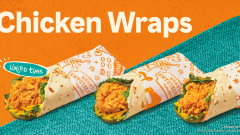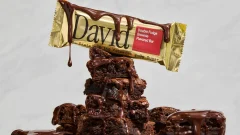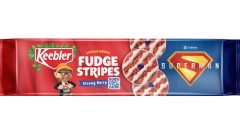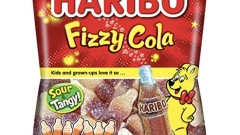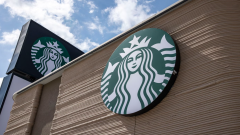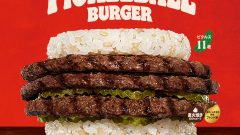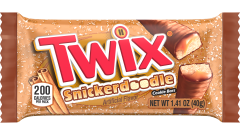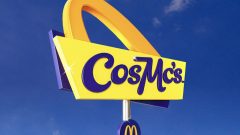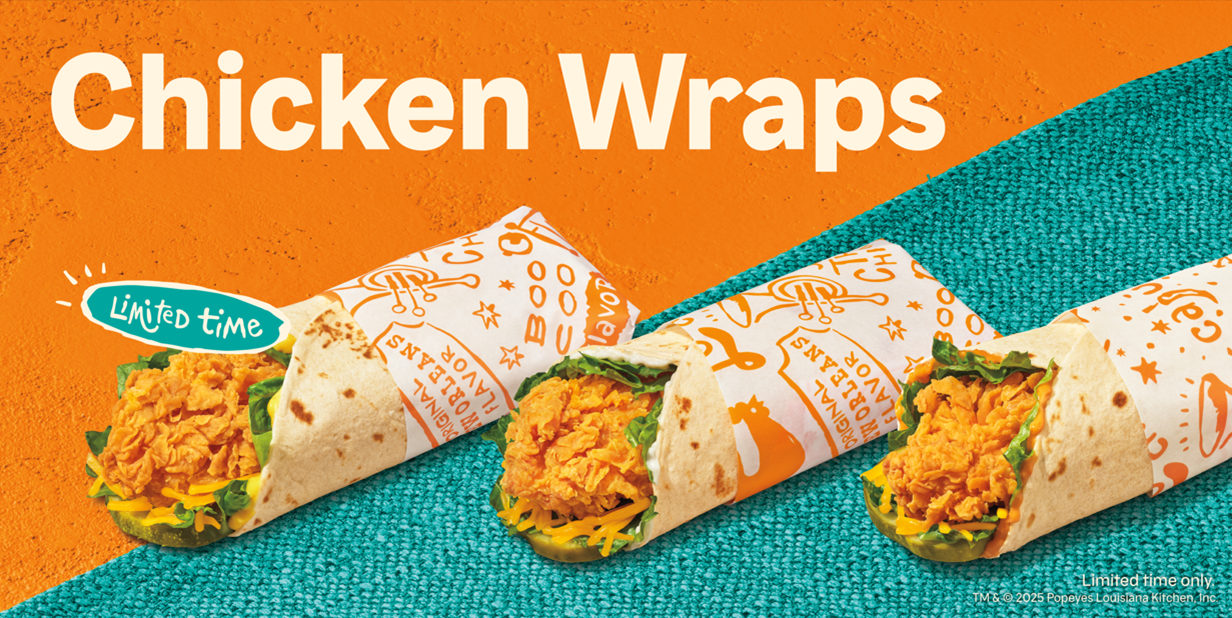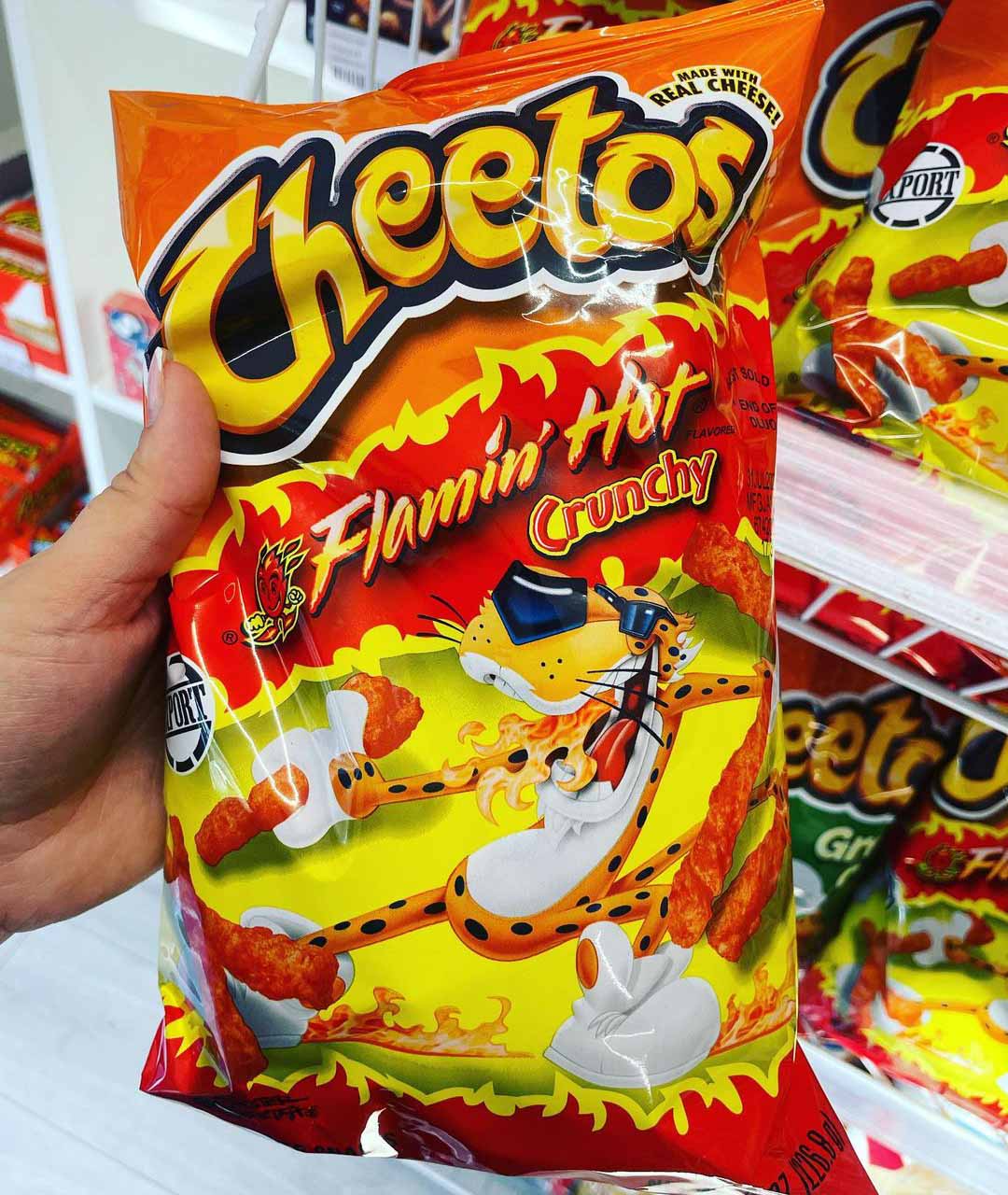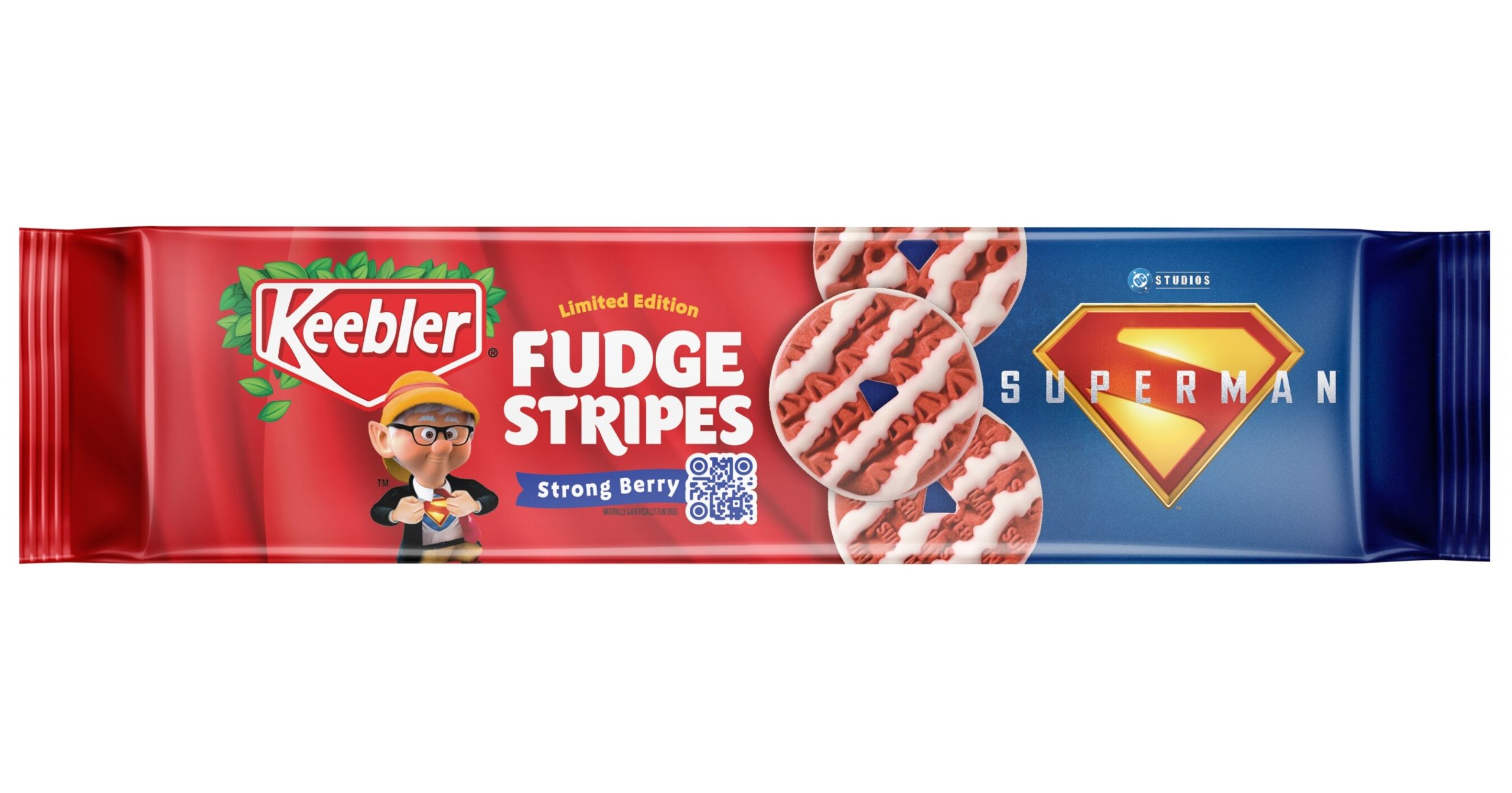The Top 10 Most Climate Friendly Fast Food Chains, Ranked
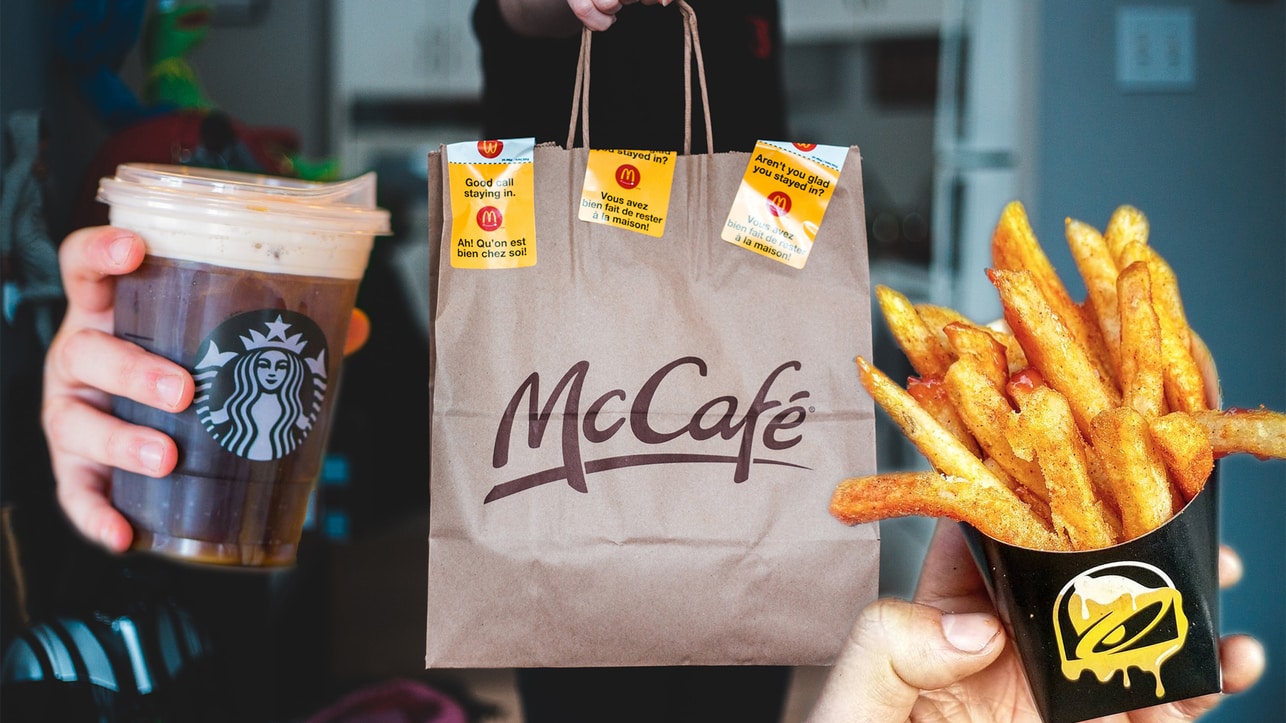
One of the biggest things that has to change for the world to be able to feed 9 billion people by 2050 is our food systems. Many produce food at unsustainable rates that don’t give back to the environment or allow things to regrow and populations to recover.
While eating in such a climate-friendly way is oftentimes expensive, many fast food chains are contributing to the cause by altering how they source their food, plastics, and energy. It’s a key step in helping change our food systems, since chains affect massive swaths of the food supply while feeding millions of people.
Sure, fast food isn’t what you would think of as completely “climate-friendly,” but many chains have made some big efforts in making their systems more sustainable. The ten chains on this list have done the most in that regard compared to other fast food giants.
When looking at what chains would make this list, we looked at the efforts they’ve made in providing sustainable food options, reducing waste and plastic usage, and overall conservation efforts for energy, water, and other resources needed to run a restaurant empire. Any support given to farming and conservation efforts that aim to make the food chain sustainable are also a big plus.
“Clean label” was not a factor considered, although many may link it to a chain that’s more environmentally friendly. “Clean label” has more to do with ingredients than it does with sustainability, and not all “clean label” chains make equitable efforts when it comes to the environment. If they do, however, chances are they’ll show up on here!
10) White Castle
White Castle was one of the first major fast food chains to add any plant-based meat alternatives, incorporating Impossible Foods into their arsenal in 2018. That’s not the only change they’ve been making to their food, however: they ensure that their fish is certified by the Marine Stewardship Council as sustainable, they recycle some of their cooking oil for biodiesel fuel, and use post-consumer recyclables to make their packaging. This includes items like the Crave Cases, which are made using recyclable materials.
The OG burger chain also has a commitment to drop their emissions by at least one percent every year. While they’re not posting regular reports about their sustainability efforts, they are transparent about the steps they are taking to improve their food system, and have a couple of sustainable meal options.
9) Taco Bell
Taco Bell makes it onto the bottom part of this list for a couple of reasons: they have a wide variety of vegetarian and vegan options for those looking to avoid more meat (a climate resource-heavy protein), and they commit to using sustainable palm oil in their food. Most of their packaging is also recyclable, reusable, or compostable, and all of it will be by 2025.
On that alone, they probably would have not made this list. However, their earlier announcement that they were beginning to test Beyond Meat products in 2021 means that one of the world’s largest fast food giants is making a serious effort to look at alternatives to ground beef, and that deserves inclusion for the impact this 7,000-plus location giant can have on the industry.
8) Subway
While Subway often doesn’t make the conversation as a ground-breaking chain, they do have a lot of efforts in place when it comes to being climate-friendly. They’ve developed ECO restaurants, use packaging that’s all recyclable or compostable, and have begun piloting energy conservation and food composting/waste diversion programs.
The sandwich empire also sources ingredients from suppliers that practice environmental stewardship and eco-friendly farming, according to their website. A lot of this is dependent on different franchisees taking these steps themselves, although it is being fostered into the larger company culture.
Subway also does have a Beyond Meatball Sub for those looking for plant-based protein options.
7) Starbucks
When it comes to packaging and sourcing, Starbucks is definitely a global leader in being climate-friendly. They’ve already taken plastic straws out of their restaurants, made their cups recyclable, and are striving to halve their emission, waste, and water usage by 2030.
The coffee titan also sources 99% of its coffee through “ethical practices,” although it should be noted that these are internal ethical standards, and have been shown to be weaker in practice than they are on paper, especially when it comes to establishing minimum coffee prices and preventing slave labor. They are one of the largest purchasers of externally certified “Fair Trade” coffee, to be fair, but they are also the world’s biggest coffee company. That should be expected.
Starbucks has also dipped its toes into the plant-based meat game, introducing an Impossible Breakfast Sandwich to their menu. They’re also looking at bringing oat milk nationwide, and already have soy and almond milk as dairy-free alternatives.
6) Shake Shack
This is the first chain on this list that doesn’t have a dedicated plant-based meat offering either available or in the works, though their vegetarian Shroom Shack should not be slept on. However, Shake Shack does have an extensive animal welfare program set up that their suppliers follow, and have committed to updating their progress annually via third-party audits.
Shake Shack also goes a step above other spots by using biodegradable straws and cups (for beers and shakes), building their locations with eco-friendly materials, and using sustainable power options like wind and renewable energy. They also invest in composting and recycling cooking oil to be used for biodiesel fuel.
As the Shake Shack empire continues to grow, so will their mission of spreading climate-friendly food, environments, and structures. If they had some true plant-based alternatives to their burgers, they would definitely be higher on this list.
5) IKEA
People normally don’t think about IKEA as a food chain. Between its wide spread of cafes and food courts, however, it classifies as the world’s sixth largest, an astounding number.
While they’re known for cheap prices and accessibility, IKEA also is taking massive steps forward when it comes to being climate-friendly. Here we’re just focusing on the food aspect, which is still pretty big: they’ve launched plant-based and salmon meatballs as more sustainable alternatives to their traditional and iconic beef version.
IKEA also has ambitious plans to improve their entire food supply chain by 2030. This includes reducing food waste, sourcing from sustainable sources, making healthier food, and promoting animal welfare. The first of their programs from this “Better Food Programme,” focused on chicken, launched in 2018.
Having one of the world’s largest food chains making such huge commitments is amazing. As those commitments are reached, it will almost certainly climb up on this list to compare with those who have taken huge steps already.
4) Jimmy John’s
Surprised? So were we, to be honest. Jimmy John’s and its 2,000 locations do a lot of amazing environmental work behind the scenes, but are public about the commitments they make on their site. This includes listing their suppliers on their website, as well as talking about the environmental commitments each of those suppliers have made.
Jimmy John’s also has their own commitments that they practice, which includes reducing greenhouse gas emissions by 30 percent by 2030. They also support improved environmental practices for raising meat on over 2 million acres of land, and target suppliers that use recyclable materials, energy, water, or all of the above.
The sandwich chain also uses plenty of recyclable materials in its packaging. All of these are practices that have been in place since the company started in 1983, according to the website, so it’s deeply embedded in the company’s culture. They may not have plant-based meat offerings, but as sandwich chains go, these guys are doing great on the climate-friendly front.
3) McDonald’s
When we talk about fast food giants taking huge steps to be more climate-friendly, none have taken bigger and further steps than McDonald’s. Across all fronts, they are working to improve their food system, from sustainable agriculture to recycling and energy conservation.
For their food, they’ve switched over their Filet-o-Fish sandwiches to all be Marine Stewardship Council certified for sustainability. They’ve been growing their lineup of ranchers to be more sustainable, use 100% sustainable espresso beans for their coffee, and follow United Nations guidelines when it comes to evaluating and implementing research in those fields. They’ve also tested many plant-based meat options globally, and we could finally see one hit US stores nationwide soon in the “McPlant” lineup.
McDonald’s is also one of two fast food titans that have joined the NextGen Cup challenge to find a renewable solution for one of their largest pieces of waste (Starbucks has also joined). They also have extensive commitments and goals to minimize water, plastic, and energy usage, all of which can be viewed and evaluated on their corporate website.
One of the chain’s biggest accomplishments in the climate-friendly space is creating a “Net Zero Energy” restaurant, which opened in 2020 at Disney World. It creates enough renewable energy to cover 100% of its needs annually, and is being used as a research hub to test solutions for locations nationwide to reduce energy and water use. These include photovoltaic panels, solar-powered lights, and even bikes that generate electricity.
2) Rubio’s
The fish taco specialist is one of the top chains in the world when it comes to sustainability. This is because nearly every option on its menu is already meeting, or close to meeting, goals when it comes to being climate-friendly.
Just about every seafood option on Rubio’s menu is certified as “Responsibly Managed” according to a third-party certification from the Food and Agriculture Organization (FAO), and the company displays as such on their website. This includes limited-time offerings like Langostino Lobster, an impressive feat. The only seafood to not be on that list is mahi mahi, and Rubio’s suppliers are working now to reach that certification.
Rubio’s also emphasizes local sourcing for its other ingredients, like tortillas, and even has plant-based options from Impossible Foods on its menu.
On top of its ingredient sourcing, Rubio’s also uses compostable and biodegradable takeout containers and napkins, meaning that its primary uses of packaging can go back into the earth and be reused. It also obtains third party certifications for its cups and paper menus to ensure they are recyclable as well, a huge plus.
Rubio’s gets close to the top for all of the remarkable efforts this chain is making, which are arguably the most of any restaurant empire on this list. Despite all of these efforts and transparency, however, there is one company that does more.
1) Chipotle
In the world of climate-friendly and sustainable food efforts, no chain is more thorough and transparent than Chipotle. They’re not just looking at the overall climate footprint picture, they have a tracker that shows how much environmental impact is reduced in each digital order. They’ve also begun to release annual climate reports that don’t just show targeted metrics: they’re transparent about whether those goals have been currently met, exceeded, or if they’re still behind on them.
Chipotle has plant-based options that have long been on the menu, like Sofritas or their veggie bowl option. However, they’re also willing to remove options if they’re not up to par, like when Carnitas was temporarily taken off the menu after it was discovered that some pork suppliers had animal welfare problems.
In terms of waste, the chain also goes above and beyond there. They have a program that donates used equipment and furniture (ie. grills and food processors) to local schools and nonprofits, and even has a Harvest Program that generates meals from leftovers that get donated to local communities. It also has set up composting in close to a fifth of its restaurants.
Overall, Chipotle is the most climate-friendly fast food chain out there because it is taking the most steps to improve environmentally andis also the most transparent and open about it. They openly market environmental sustainability to the point where you can track it online orders, promoting a future of food that is better for the environment and the planet. What other major fast food players can say that?



